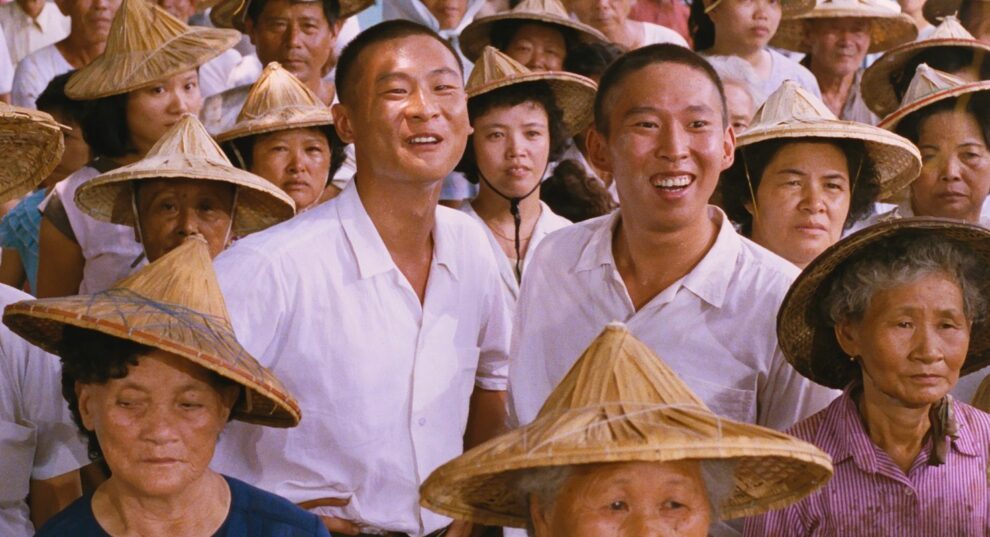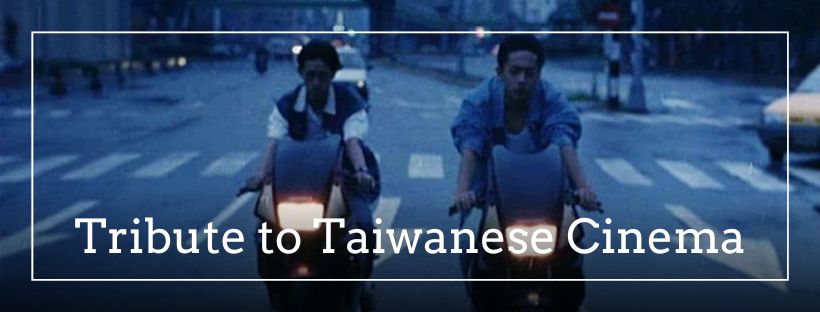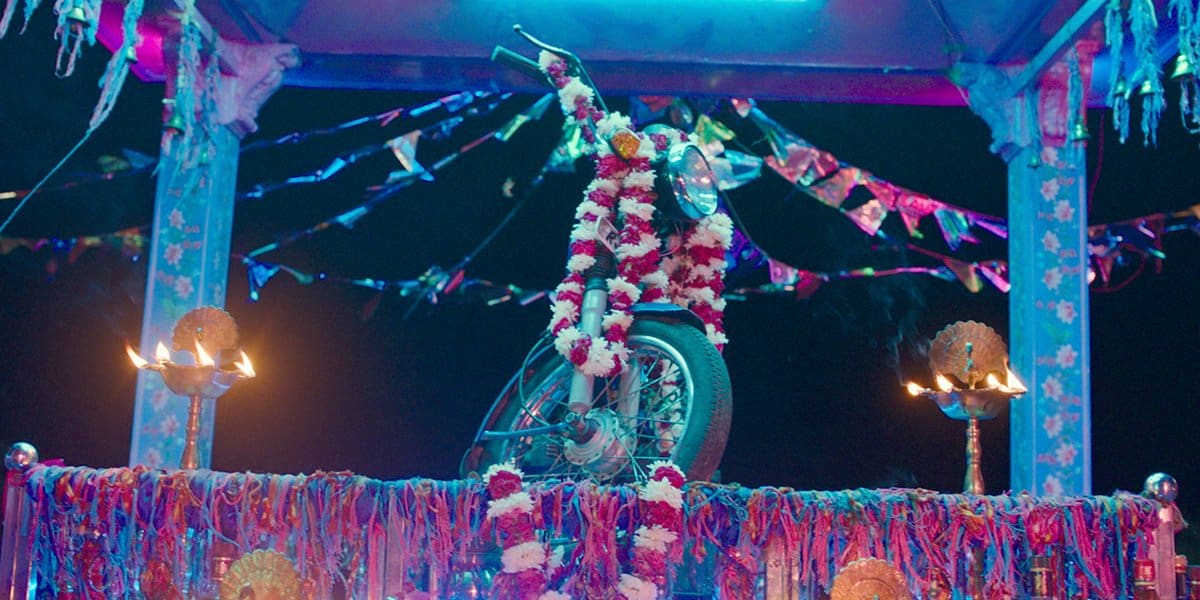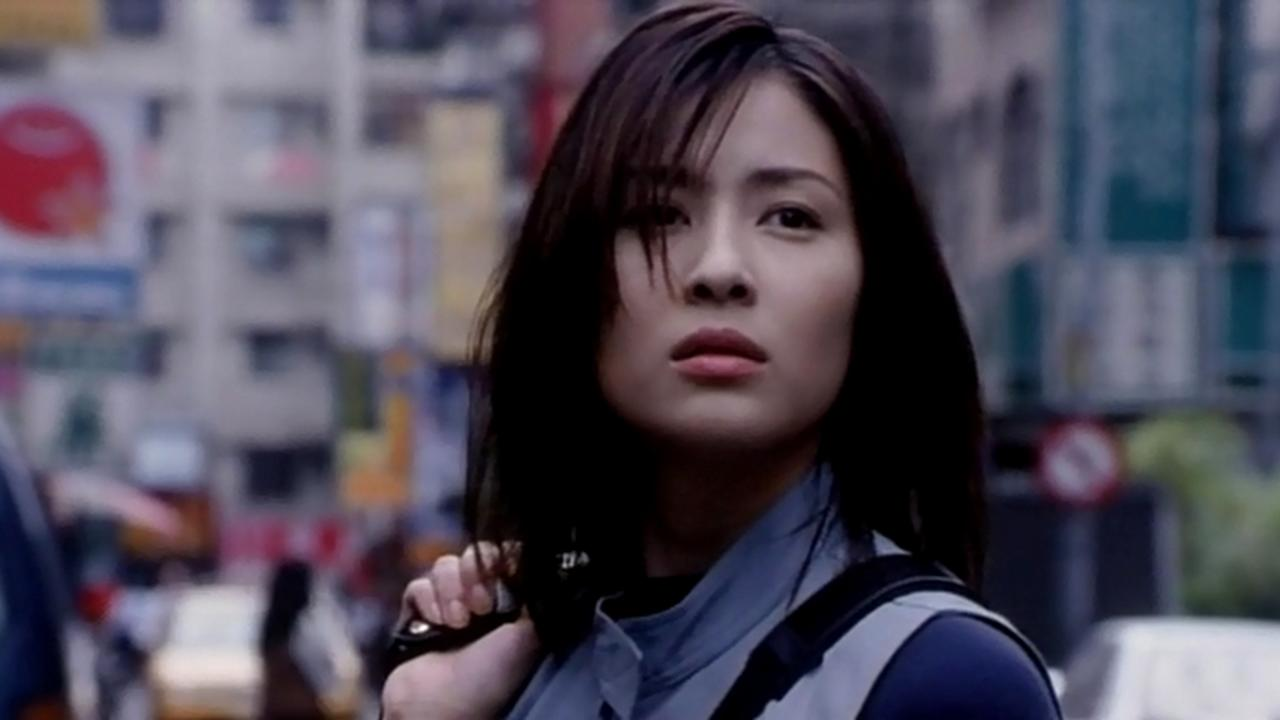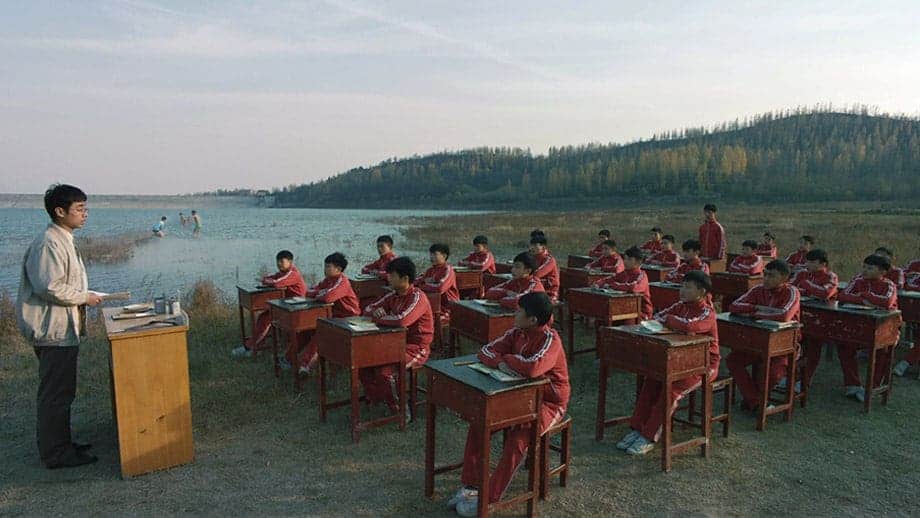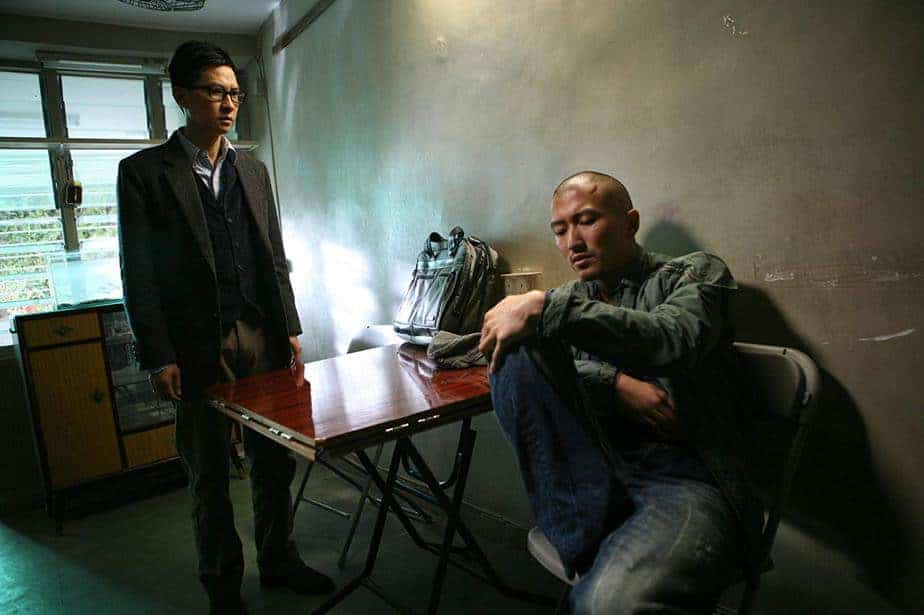The events following the KMT army's move to Taiwan in 1949, and the subsequent political division between China and the eventually under martial law Taiwan is one of the most dramatic periods in the history of the area, particularly because, just like the split of two Koreas, prevented millions from being able to see their loved ones. Using the format of a family drama epic that lasts for four decades, Wang Tung presents the events that shaped this period, through the story of two brothers. It is also worth noting that the film signaled a period, after the ending to the martial law in the country in 1987, when filmmakers could finally talk about this rather troubled period.
Simpleton ‘Door Latch' and his brother Te-Sheng follow the KMT army to Taiwan in 1949, swooned by dreams of a ‘banana paradise' that provides opportunities for everyone. However, through their work in a theater troupe there, they barely make enough to live, while eventually find themselves under the clutches of the anti-communist authorities. Te-sheng in particular suffers extensive torture, which leads him into losing his mind and becoming infantile. Door Latch, on the other hand, during an eventful night when he is chased by the authorities, stumbles upon Yue-Xiang, a woman calling for help for her sick husband, who he soon witnesses dying. Not having many alternatives, the woman forces him to take her husband's name, and essentially become the new father of her son. With the deceased's diploma in his hands, the Door Latch/Li gets an office job, even though he can barely read and write. The past, however, never ceases to chase him, while eventually he reunites with his brother.
Allow me to start with what is the most major issue of the film. The pacing, particularly in the flash forwards does not work at all, with Chen Li-Yu and Chen Sheng-Chang's editing being quite faulty in that regard, to the point that it frequently takes a few minutes to realize that there has been a time leap. Apart from this, however, the rest of the movie is quite good.
Check the interview with the director
For starters, the story of the two brothers is captivating by itself, with the fact that the person of focus soon turns from Te-Sheng to Door Latch working quite well here, essentially as a type of twist in the story. The juxtaposition of drama, as mirrored in the former's story, and the more comedic approach, as mirrored in the latter, a man who tricked his way into an office career although illiterate, is also quite appealing to watch. Even more since Li is liked by women and has a tendency to get in trouble, frequently in hilarious ways. At the same time, that the lives of both are shaped by the harshness of the authorities during the White Terror period adds a very impactful drama element to the narrative, while also making a rather pointed, but also realistic comment.
This combination of comedy and drama is one of the major elements that carries the movie from beginning to end, with Wang Tung's direction in that regard being truly impressive. The second element is the number of episodes presented through the movie, which highlight both the history of the brother's and their family, and that of the country, in the most entertaining but also informative way.
The last part, on the other hand, moves into utterly melodramatic paths, even though the setting is now that of a middle-class family. The problems the patriarch still faces with his past and his inability to adapt to the ever-changing society is just the beginning, with the ‘connection' scene in the end being, essentially, where the whole meaning of the movie lies. The two final scenes are also quite intriguing in the ways they can be interpreted, with Wang Tung closing his movie in the best fashion, even if he does not fully avoid the forced sentimalism moments.
The acting is also on a very high level. Doze Niu Cheng-Tse as Door Latch is excellent in his simpleton's ways, highlighting a ‘poor devil' in the best fashion. Zhang Shi as Te-Sheng is quite convincing in the ways he presents his transformation, which is one of the main sources of the comments against the practices of the Nationalists. Hing Yue Chang as Yue-Xiang is also quite good as her husband's boss, and essentially the driving force behind all his life choices.
The combination of Liao Pen-Jung and Lin Ming-Kuo's cinematography and the art direction by Chen Li-Yu and Chen Sheng-Chang is another trait of the film, with the presentation of the various eras and settings, from the war front to the modern apartment, being excellent.
Despite some issues with the way the story unfolds, “Banana Paradise” is an excellent movie that manages to present both the history of the island and a captivating story with the most entertaining and meaningful way.


